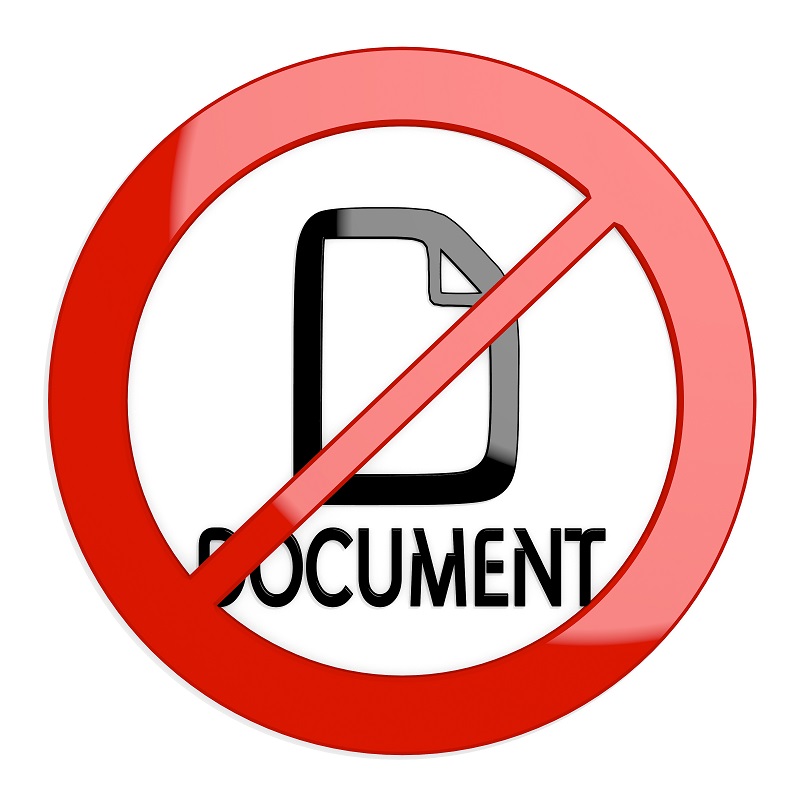We Don’t Do That!
There are some things you may think we do, but that we do not do because the General Assembly has not authorized us to do them. And, if we are not authorized to do something, we also cannot help you with it. We may be able to point you to other places to get help.
ELECTIONS

We do not handle Elections. The North Carolina Secretary of State's Office does not have jurisdiction over elections and voter information. Those duties are administered by an independent board of elections. To voice your concerns or questions about any election-related issue:
Contact:
North Carolina State Board of Elections & Ethics Enforcement
Mailing Address: PO Box 27255, Raleigh, NC 27611-7255
Physical Address: Third floor, 430 N. Salisbury St., Raleigh, NC 27603-5918
Phone: 919-814-0700 or 866-522-4723
Email: [email protected]
Fax: 919-715-0135
We do have some, limited responsibilities with regard to elections. For example, the State Board of Elections forwards certified copies of documents like elections abstracts to us. We maintain those documents. We make them accessible to the public in response to public records requests. As another example, the Secretary of State is also responsible for making the arrangements for the quadrennial meeting of the Presidential Electors. We do not pick the presidential electors and we do not have anything to do with who they vote for when the Electoral College meets.
No Legal Advice to the Public
 The office provides information in response to questions from agency staff, other government agencies, and the public. However, neither the office nor any of our employees can provide legal advice to members of the public or other government agencies.
The office provides information in response to questions from agency staff, other government agencies, and the public. However, neither the office nor any of our employees can provide legal advice to members of the public or other government agencies.
The North Carolina State Bar is the agency that regulates attorneys. The State Bar’s standards for lawyers state that lawyers can only give legal advice in an attorney-client relationship. Therefore, we only provide legal advice to the Department and its staff regarding official business.
If you need legal advice, go to the “Where can I find other help?” page.
HOMEOWNERS’ ASSOCIATIONS

We do not handle homeowners’ association issues. We do not have any authority to help if there is a disagreement between an association and its members. We also can’t help if there is a dispute between an association and its paid managers.
FAQs about homeowners’ associations.
There is one thing we do with regard to homeowners’ associations. The associations incorporate as nonprofits through our office.
BUSINESS DISPUTES

We do not handle business disputes. For purposes of this explanation there are three kinds of business disputes: disputes inside a business, and disputes between businesses and disputes between businesses and individuals.
We do not have the authority to intervene in internal business disputes and disagreements. For example, we cannot get involved in disputes about how a business is being managed. If there is a dispute and people start filing competing changes to our records about the business, there is a point at which we will stop accepting the changes. We will then tell the people they will have to go to the judicial system to get the dispute resolved.
We do not handle most disputes between businesses. For example, if one business says that another business has not paid its bills or provided bad goods, we cannot help.
We do investigate certain kinds of fraud that may be related to disputes between businesses and individuals. For example, we investigate securities frauds like Ponzi schemes. For more information about our Securities Division, We also investigate Notary Public misconduct. Information about our Notary Enforcement Unit.
If a business involved in the dispute may have been committing fraud, there may be another government agency that can help. More information about other places to get help.
DOCUMENTS WE DO NOT FILE
Just because you send us a document and tell us to file it, does not mean that we will file it. We do not accept or file documents renouncing U.S. citizenship. Only the U.S. Department of State can accept documents renouncing U.S. citizenship.

We cannot file a document unless there is a North Carolina General Statute or rule in the North Carolina Administrative Code that authorizes us to file it. Even if there is such a law or rule, we will not necessarily file the document. That is because we have to review the document to see if it fully complies with the law.
